Peering into the complex narrative of Dexter is like untangling a ball of yarn; there are knots of intrigue, twists of morality, and threads of identity that weave a captivating, albeit disconcerting, tale.

You might have stumbled upon a Youtube discussion that proposes Dexter as a show that didn’t quite comprehend moral dilemmas. It’s a provocative stance, isn’t it? Did the creators merely brandish the aesthetic of moral quandary without truly understanding its weight?
As you navigate this labyrinth of thought, you’re left pondering – does Dexter’s ‘code’ truly justify his deeds, or is it a flawed echo of our own moral compass? You’re invited to dissect this further.
Key Takeaways
- The show Dexter is critiqued for its portrayal of moral dilemmas, despite its central theme of exploring morality.
- Dexter’s ‘code of Harry’ raises controversial questions about the nature of good and evil.
- While the series delves into Dexter’s sociopathic tendencies, viewers may question its understanding of moral complexities.
- Despite criticism, the exploration of morality and justice in Dexter resonated with audiences, contributing to its enduring popularity.
Overview of Dexter
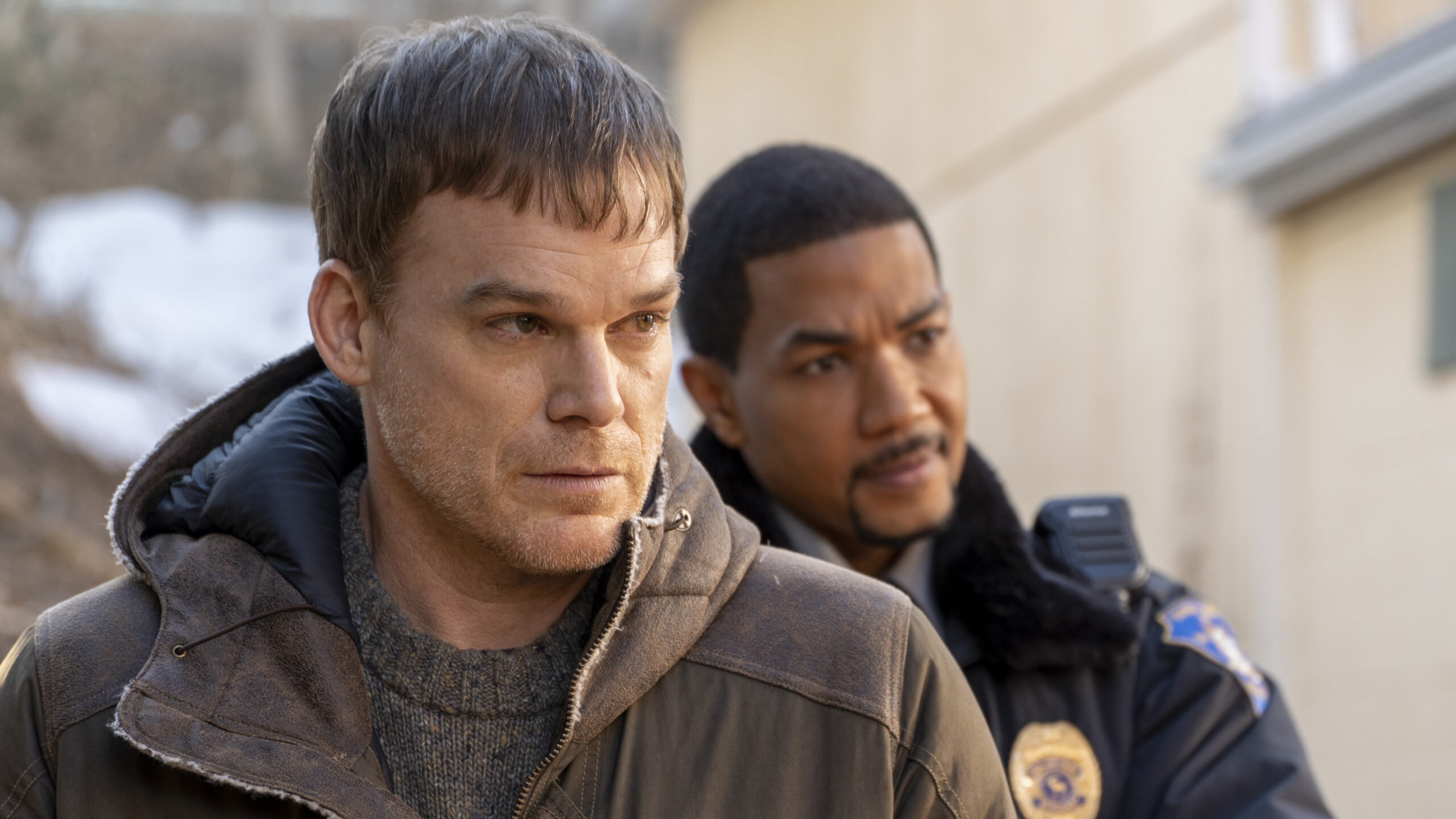
Diving right into the heart of the dark and alluring world of Dexter, you find yourself immersed in the life of Dexter Morgan, a blood spatter analyst for the Miami Metro Police Department by day and a vigilante serial killer by night.
The psychological analysis of Dexter is complex; he’s a sociopath, yet his actions are guided by a moral code. This duality not only keeps you captivated but also forces you to question societal implications.
Dexter’s saga is a mirror reflecting our own fascination with antiheroes and the blurred lines between right and wrong. As you journey through this thrilling narrative, you’ll find that Dexter is more than just a show; it’s a thought-provoking exploration of the human condition.
The Moral Dilemmas Explored
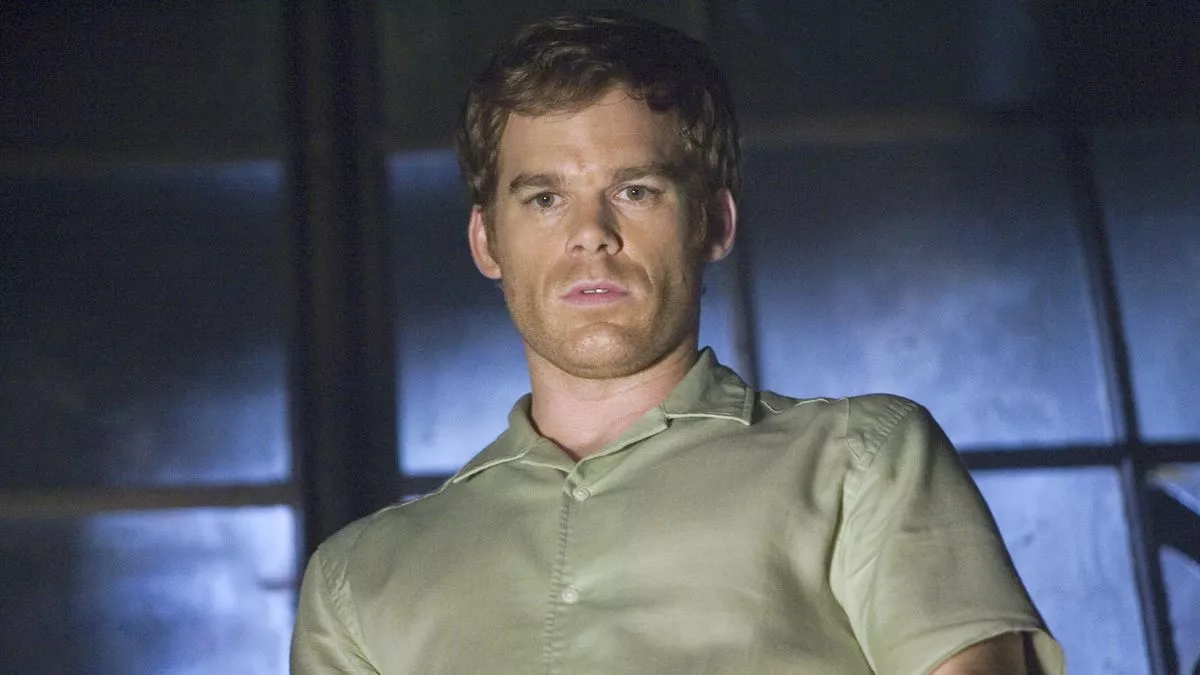
Peeling back the layers of Dexter’s narrative, you’re plunged into a whirlpool of moral dilemmas that challenge conventional definitions of good and evil. This exploration of ethics isn’t a simple black and white debate, but a grey area that Dexter navigates with a chilling calm.
- Dexter’s code, instilled by his adoptive father, dictates he should only kill people who’ve committed heinous crimes. Is it a warped sense of justice or a mere justification for his monstrous desires?
- His relationship with his sister Debra, who’s in law enforcement, puts him in a precarious position. Would he betray his sister to protect his secret?
- His psychological conflicts intensify when he becomes a father. What legacy is he leaving for his son?
The show leaves you questioning your own moral compass, making for an intriguing, if unsettling, viewing experience.
Dexter’s Identity Struggles

While you grapple with the moral quandaries the show presents, a compelling facet of Dexter’s narrative emerges: his constant struggle with his dual identity. This struggle for acceptance isn’t just about fitting into society, but also reconciling with the part of him that thirsts for blood.
It’s a captivating, yet unsettling dance between Dexter Morgan, the blood spatter analyst, and Dexter, the vigilante serial killer. This internal conflict rages within him, tearing at the seams of his carefully constructed facade. As you watch, you’re drawn into his turmoil, oscillating between empathy and repulsion.
Dexter’s identity struggles create a riveting paradox, one that constantly challenges your perceptions, making you question where the man ends and the monster begins.
Good Vs Evil in Dexter
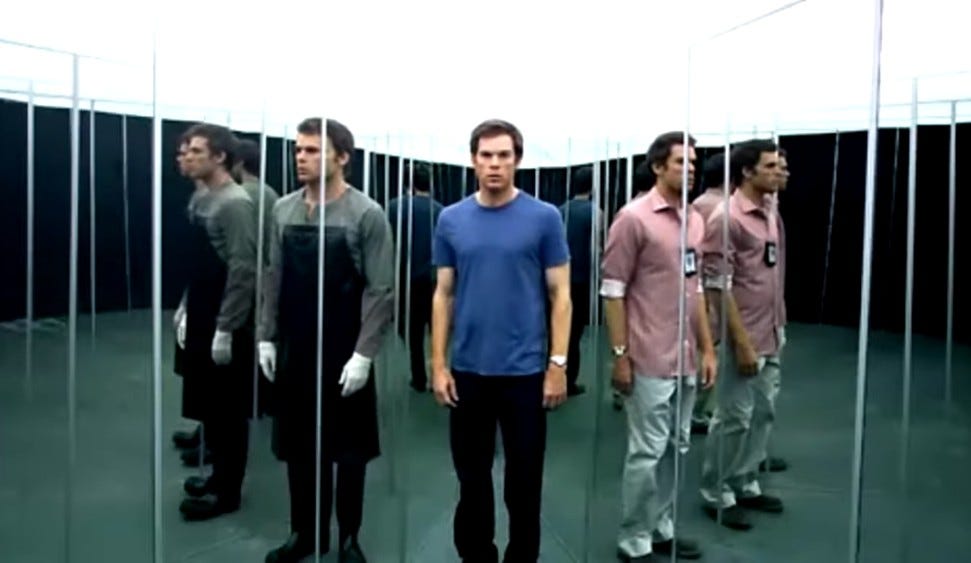
In the morally charged landscape of Dexter, the lines between good and evil aren’t just blurred, but utterly shattered. As you delve deeper into the show, you’ll find it’s not a simple case of good vs evil. Instead, it’s a twisted dance of moral ambiguity where the protagonist is both the hero and the villain.
- Dexter, the serial killer who only targets other criminals, paints a picture of vigilante justice.
- His moral code, the ‘code of Harry,’ is his twisted compass, guiding him through his dark urges.
- The audience, despite witnessing his heinous acts, often finds themselves rooting for Dexter.
This fascinating dynamic keeps you hooked, questioning your own understanding of morality, while being thoroughly entertained by the show’s captivating narrative.
The Impact of Dexter’s Morality on Relationships

Just as Dexter’s complex morality spurs you to question your own, it also greatly influences his relationships with those around him. This impact can be felt deeply in the intricate interpersonal dynamics of the show, shaping each bond he forms or breaks.
His secretive double life inevitably strains his connections, as he constantly walks on a dangerous tightrope between love and deception. Whether it’s the brotherly bond with the unsuspecting Sergeant Doakes, his twisted love for Hannah McKay, or the tumultuous relationship with his sister Debra, Dexter’s moral ambiguity is the fulcrum.
It’s a compelling exploration of how one’s internal moral compass can dramatically affect relationships. For you, the viewer, it’s not just a thrilling ride, but also an invitation to ponder on the ripple effects of personal ethics on human connections.
Dexter’s Character Development
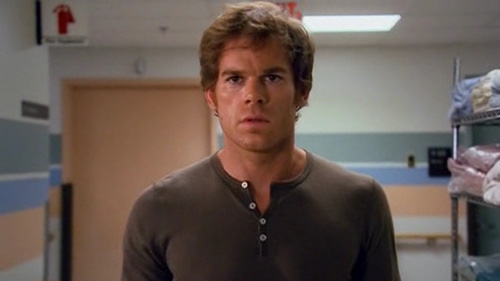
Peeling back the layers of Dexter’s psyche throughout the series, you’re taken on a profound journey of character development that transforms a blood-spatter analyst by day, serial killer by night, into a complex, multifaceted individual wrestling with his own humanity. This is no simple protagonist, but a man grappling with his urges, his morality, and his place in the world.
As you dive deeper, you’ll discover:
- A chilling exploration of Dexter’s past, uncovering the roots of his sociopathic tendencies.
- Dexter’s internal conflicts, driving his character growth and forcing him to reconcile with his dual nature.
- Significant relationships, notably with sister Debra and son Harrison, that challenge his identity and foster change.
Dexter’s character development is a captivating blend of suspense, introspection, and transformation.
Impact of Dexter on Pop Culture
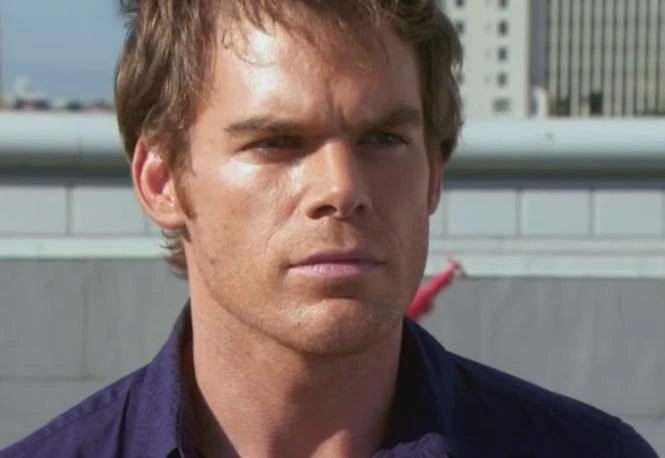
While Dexter’s personal evolution captivates viewers, it’s the show’s larger influence on pop culture that truly attests to its success.
This pop culture influence is undeniable, with Dexter’s character becoming an iconic antihero. You’ve seen the show’s exploration of morality and justice strike a chord with audiences, leading to its enduring popularity.
But remember, Dexter didn’t just garner fans; it stirred conversations, challenging traditional notions of good and evil. This unique blend of crime drama and moral quandary resonated, leaving a lasting impression.
Despite mixed critical reception, especially towards the end, it’s clear that Dexter’s impact goes beyond TV ratings. Even as we anticipate the 2021 revival, one thing’s certain: Dexter’s mark on pop culture remains indelible.
Iconic Dexter Catchphrases
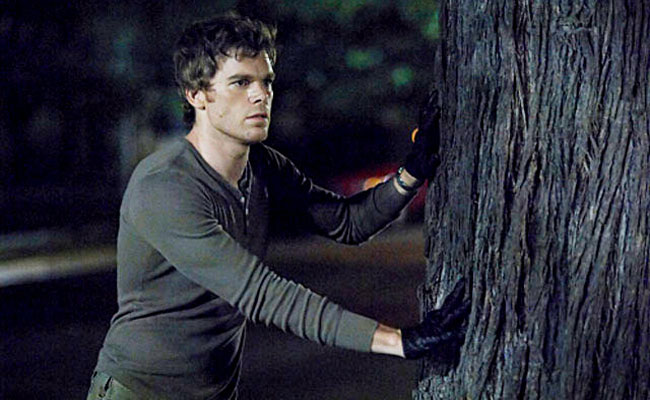
Among the many memorable aspects of Dexter, a handful of iconic catchphrases truly stand out, echoing in the minds of fans long after the credits roll. These catchphrases offer insight into Dexter’s psychology, and they’re a major part of Dexter’s legacy.
- ‘Tonight’s the night,’ sets the scene for Dexter’s nocturnal escapades.
- ‘I’m a very neat monster,’ reflects his obsessive need for control and order.
- ‘Blood. Sometimes it sets my teeth on edge, other times it helps me control the chaos,’ reveals his complex relationship with his violent impulses.
These catchphrases don’t just entertain; they peel back layers of Dexter’s character. They’re reminders of his internal struggles, his dual nature, and his attempts to reconcile his dark desires with his outward semblance of normality.
Critic Receptions and Reviews

Just as Dexter’s iconic catchphrases have left a lasting impact, the critical reception and reviews of the series have played a major role in shaping its legacy.
The show’s unique premise and character development won over critics during its initial seasons, with Michael C. Hall’s chilling yet charismatic performance as Dexter Morgan gaining particular praise. The critical analysis, however, wasn’t all positive. Later seasons faced criticism for plot inconsistencies and a polarizing series finale.
Yet despite its flaws, viewer reception remained strong. The show’s exploration of moral dilemmas, coupled with its memorable characters, ensured Dexter maintained a dedicated fan base.
The mixed reviews have contributed to the show’s complex legacy, proving that even in criticism, there’s merit.
The Legacy Continues: 2021 Revival

Despite the mixed reviews and criticism of later seasons, you’ll be thrilled to know that Dexter’s legacy refuses to die, making a much-anticipated return with a revival in 2021. The 2021 revival is all set to reignite the fiery debate about Dexter’s moral dilemmas, and fan expectations are soaring.
Here’s what you can look forward to:
- A return to form for the show, with lead Michael C. Hall reprising his role.
- An exploration of Dexter’s new life after the controversial finale.
- The potential resolution of loose ends that left fans speculating.
This revival signals an exciting opportunity to revisit a world that captivated viewers for years, and to further delve into the complexities of Dexter’s character. Buckle up, because Dexter is back!
Conclusion
So, as you step back from the morally ambiguous world of Dexter, take note of this intriguing fact: despite the show’s twisted premise, it garnered a whopping 8.6 rating on IMDb.
Dexter’s unique exploration of morality may have left critics divided, but its ability to captivate audiences worldwide is undeniable. As we eagerly anticipate the revival, one thing’s for certain – Dexter’s legacy as a pop culture phenomenon continues to thrive.